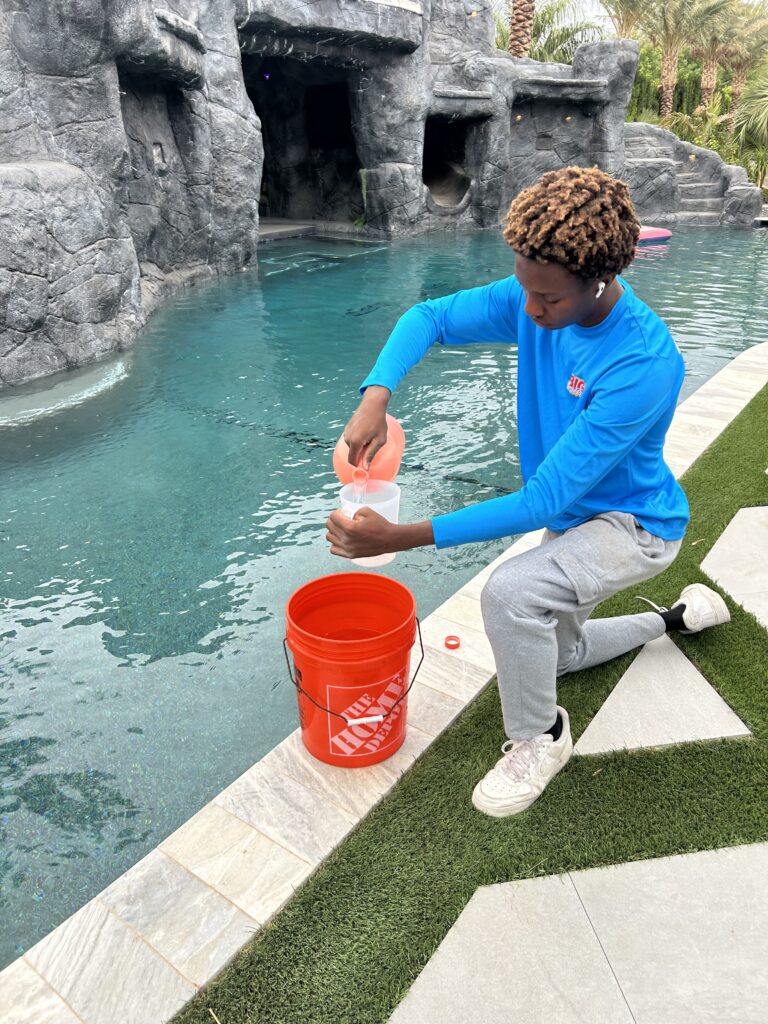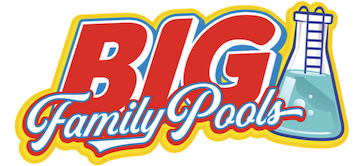Your swimming pool is a significant investment in your home and lifestyle. So why settle for pool service that’s merely “good enough”? At BIG Family Pools, we believe that good enough, isn’t. Here are three critical practices your pool service should be implementing that separate the professionals from the pretenders.
1. Using Electronic Testing Equipment
Did you know that approximately 1 in 10 men have some form of color blindness? This common condition can significantly impact a pool technician’s ability to accurately read traditional color-based test strips and reagent kits. When your water chemistry depends on distinguishing between subtle shades of pink, yellow, or blue, color perception matters.
Professional pool services should be utilizing electronic testing equipment that removes the guesswork. These digital testers provide precise readings of your pool’s chemical levels without relying on subjective color interpretation. With electronic testing, you get consistent, accurate readings every time—regardless of lighting conditions or the technician’s color perception abilities. Take the guess work out of your pool chemistry.
2. Measuring and Diluting Acid Properly

Here’s a sobering fact: it takes precisely 21 ounces of acid in a 10,000-gallon pool to bring the pH from 8.0 down to 7.5. Can your pool technician measure 21 ounces with their eye? Of course not.
Quality pool service isn’t about eyeballing chemicals or taking shortcuts. Professional technicians should be carefully measuring chemicals with proper equipment, not guessing or estimating. Furthermore, they should always dilute acid before adding it to your pool. Pouring undiluted acid directly into your pool can damage your pool’s surface, creating etching and deterioration that shortens the lifespan of your investment.
Proper acid application involves pre-diluting in a bucket of pool water, then carefully distributing it around the pool’s perimeter—never dumping it in one spot. If your pool service isn’t taking these precautions, they’re literally eating away at your pool’s surface.
3. Using LSI Instead of Basic Range Chemistry
Basic range chemistry—simply keeping pH, chlorine, and alkalinity within acceptable ranges—might be “good enough” for some pool companies, but it falls dramatically short, especially in Phoenix’s harsh weather swings. Temperature fluctuations can throw your water chemistry into chaos if you’re only focusing on basic ranges.
Professional pool services should be utilizing the Langelier Saturation Index (LSI), a comprehensive formula that accounts for pH, alkalinity, calcium hardness, temperature, and total dissolved solids. LSI provides a complete picture of your water’s balance and helps prevent both scaling and corrosion.
If your pool service is using basic range chemistry instead of LSI, they’re settling for “good enough”—and so are you. At BIG Family Pools, we believe that good enough isn’t. We use LSI calculations for every pool we service, ensuring truly balanced water that protects your investment year-round, regardless of temperature swings.
Don’t compromise on your pool’s care. If your current service isn’t meeting these standards, it’s time to explore alternatives that will protect your investment and ensure safe, crystal-clear water all season long.
